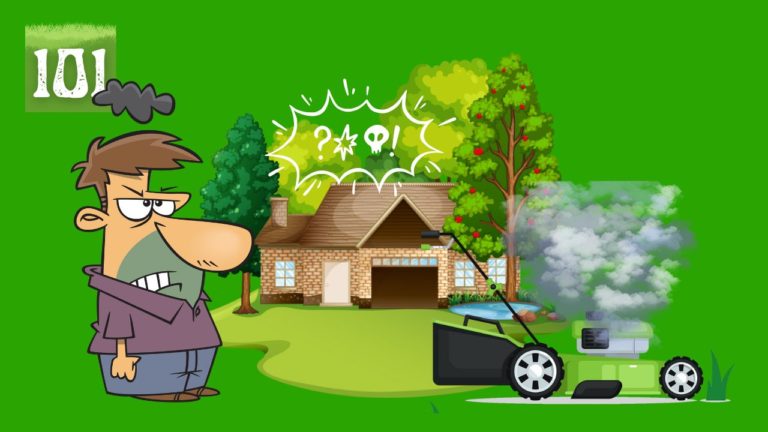Do you need an agreement with a lawn-mowing customer?
When you start bringing on your first customers, you will probably wonder…
What kind of agreement do you need with your lawn mowing customers or do you need an agreement with a lawn-mowing customer at all?
That is a question I get asked a lot.When you start quoting lawns and getting customers, you feel like you should be formalising the agreement somehow. What are the other lawn mowing contractors doing? Should you give them a contract to sign?Here in New Zealand, the simple answer is “No.” In my 35 years in the industry, I have NEVER asked a customer to sign a contract. And I have had customers ranging from domestic households, government departments, retirement villages and even a private hospitable.
They are just not necessary.
There’s no need to sign a contract when mowing someone’s lawn. A verbal agreement is just as good—and it’s a lot less expensive and time-consuming. So save yourself the headache and just go out and start mowing!
Contracts are expensive.
If you’re just starting, you might not have the money to pay a lawyer to draw one up—and even if you did, it’s not worth the money when you consider that most lawn-mowing jobs are not high-value transactions. Furthermore, contracts can be complicated and time-consuming to create.
A simple verbal agreement is sometimes best.
You May Not Need All the Extras
A lawn mowing agreement usually complicates matters. In fact, it can be much simpler to verbally outlines the scope of work and payment terms with most simple lawn mowing jobs.
What happens if the client insists on an agreement?
On the very rear occasion where a client has wanted a contract signed. They usually supply a document with unfavourable conditions for the signee (me).
I have turned them down.
Should You Sign a Client’s Contract?
When starting a business, saying no to a client can be tough. After all, every client is a potential source of revenue. However, there are some occasions when it pays to stand your ground—one of those occasions is when a client asks you to sign their contract.
Let’s consider why you should think twice before putting pen to paper.
First, you should be wary of signing a client’s contract because it could contain unfavourable terms for you. For example, the contract might stipulate that the client can cancel the agreement anytime without providing any notice or compensation.
This could leave you in a difficult situation if the client cancels the agreement—or if they simply stop paying you!—since you would then be unable to find work elsewhere to make up for the lost income.
Lastly, it’s important to remember that a contract is legally binding. This means that if you sign a client’s agreement and something goes wrong, you could find yourself dragged into court—and nobody wants that! If you’re unsure about any contract terms, consult with a lawyer before signing on the dotted line.
Generally, it’s always best to have a lawyer look over any contract before you sign it. Even if everything looks aboveboard, some potential risks are still associated with signing a client’s contract. So, if possible, try negotiating more favourable terms or walk away from the deal altogether. Your business will thank you for it in the long run!
Keep it simple.
Do you need an agreement with a lawn-mowing customer?
You do need an agreement, but I think a verbal agreements is the best method for my business.
For lawnmowing businesses, keeping things simple is often the best course of action. Verbal service agreements are one way to do just that. We’ll explore why oral service agreements are often the best option for small businesses in the lawnmowing industry.
There are a few reasons why verbal service agreements tend to be the best option for lawnmowing businesses. First, they’re easy to make and don’t require any special paperwork or legal knowledge. Second, they’re easy to understand and can be adjusted on the fly if needed. And finally, they’re hard to enforce, which means that you don’t have to worry about a customer taking you to court if they’re not happy with your services.
All things considered, small businesses in the lawnmowing industry are often best off using verbal service agreements. They’re easy to make and understand and can be adjusted on the fly if needed. However, keeping good records of what you agreed upon is essential, as verbal agreements can be difficult to remember.
Adding conditions to a verbal agreement.
I sometimes put conditions on a verbal agreement. If I give a discount on a first cut or clean-up, I will let them know this is conditional on getting four mows on a regular cut cycle after that. I have a minimum charge of $60 for one-off lawns. I want to ensure they are booking a reoccurring cut.
Why Add Conditions?
Adding conditions to a verbal agreement can help you in two ways. First, it ensures that both parties are clear on what they expect. Second, it gives you an out if the other party does not hold up their end of the bargain.
For example, let’s say a potential customer approaches you and wants you to give them a quote for mowing their lawn. After hearing the details, you agree to do the overgrown lawn for $80 instead of $160. However, you make it clear that this price is only good because they are booking a regular mow after that.
By adding this condition, you’ve protected yourself in two ways. First, the customer knows that they will need to commit to a regular mow to get the discounted rate. Second, if the customer decides not to go through with the regular mow, you can still charge them the higher rate—ensuring that you’re getting compensated fairly for your work.
When Should You Add Conditions?
There isn’t necessarily one correct answer to this question. It depends on your business and your industry. However, there are a few general situations when adding conditions could be beneficial:
- When you’re providing a service with a recurring cost
- When you’re offering a discount
- When you want to ensure commitment from the other party
- When payment is due upfront
These are all situations when it’s essential to make sure that both parties are clear on what they expect—and when it’s necessary to have an out if things don’t go as planned.
In closing
So Do you need an agreement with a lawn-mowing customer?
With businesses like lawnmowing, a verbal agreement is all you have to go on. In those cases, if needed, you can still protect yourself by adding conditions to the agreement. This will ensure both parties are clear on what they expect and give you an out if the other party doesn’t hold up their end of the deal.
A lawn mowing customer is likelier to be happy with your service if you have a good working relationship. This is much more important than a written agreement.
I see it if you have 100 people who agree that you will be regularly mowing their lawn.
Then you have a business.







